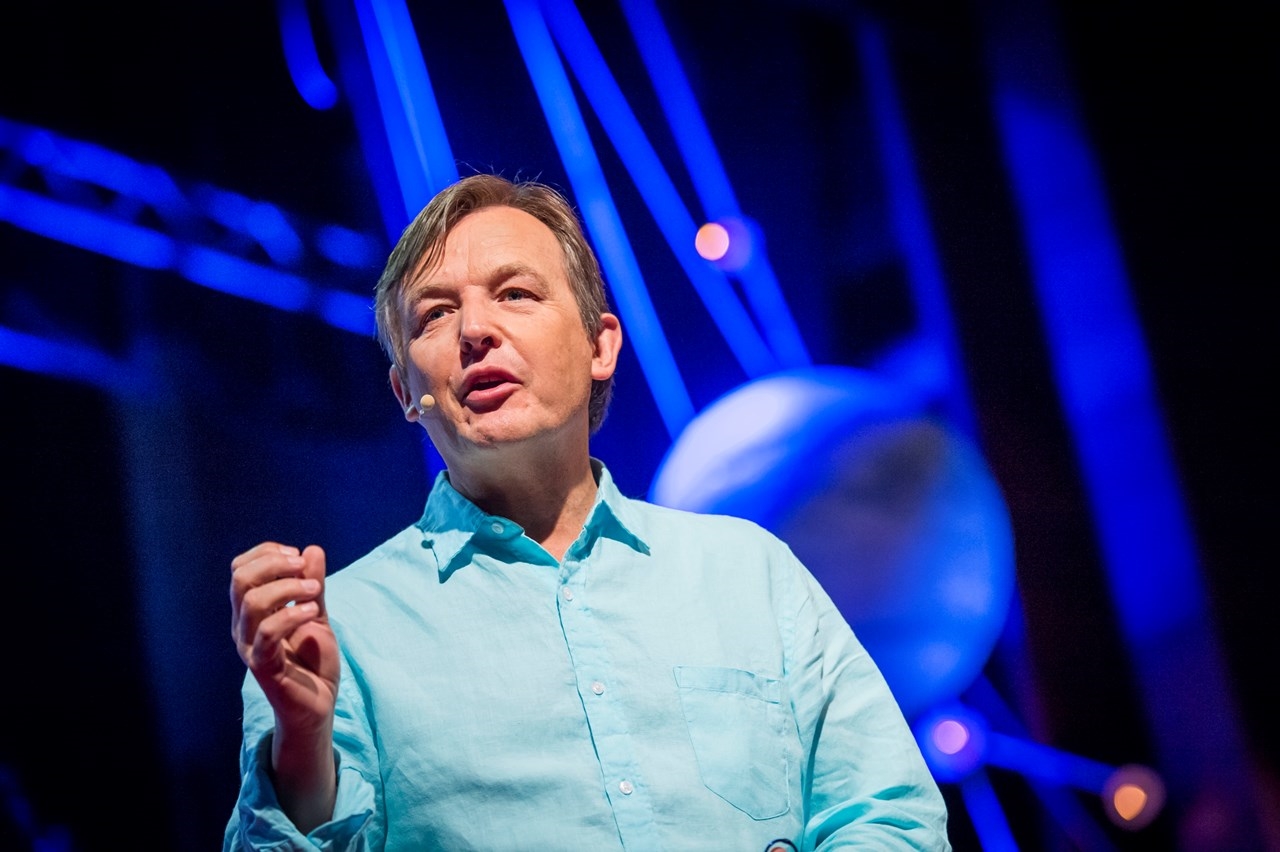Chris Anderson was born in a remote village in Pakistan in 1957. His early years were spent moving between Pakistan, India, and Afghanistan, where his parents worked as medical missionaries. He attended an American school in the Himalayas before continuing his education at Monkton Combe School, a boarding school near Bath, England. Anderson pursued his higher education at the University of Oxford, initially studying physics before switching to philosophy, politics, and economics, graduating in 1978.
Anderson started his career as a journalist, working in newspapers and radio. He spent two years in the Seychelles producing a world news service before returning to the UK in 1984. Fascinated by the rise of personal computers, he became an editor for an early computer magazine. The following year, he founded Future Publishing with a $25,000 bank loan, initially focusing on computer-related publications before expanding into other areas like music, video games, cycling, and design. The company grew rapidly, doubling in size annually for seven years.
In 1994, Anderson moved to the U.S. and established Imagine Media, which published Business 2.0 magazine and launched IGN, a popular gaming website. Eventually, he merged Imagine with Future Publishing, taking the combined company public in London in 1999. At its height, Future published 150 magazines and websites and employed 2,000 people.
This success enabled Anderson to start the Sapling Foundation, a nonprofit aimed at addressing global challenges through media, technology, and entrepreneurship. In 2001, Sapling acquired the TED Conference, then a niche event focused on technology, entertainment, and design. Leaving Future behind, Chris dedicated himself fully to TED, broadening its scope to include science, business, and global issues. He also introduced new initiatives like the TED Fellows program and the TED Prize, which funds ideas that aim to change the world.
 Chris AndersonWiki
Chris AndersonWiki
In 2006, TED began uploading talks online, which quickly gained popularity, transforming TED into a global platform for sharing ideas. By 2015, the organization had posted 2,000 talks online, translated into over 100 languages, with annual viewership reaching one billion. Anderson also launched TEDx in 2009, allowing individuals to host their own TED-style events, leading to over 8,000 events and 60,000 TEDx talks. In 2012, he introduced TED-Ed, providing free educational videos and resources for teachers and students.
Through his leadership, Anderson turned TED into a worldwide movement, using the power of digital media to spread knowledge and inspire millions.
In January 2024, Anderson released "Infectious Generosity: The Ultimate Idea Worth Spreading," exploring how kindness and giving can become viral phenomena in the digital age. This work emphasizes the potential of the Internet as a hub for generosity and optimism.
In February 2025, after 25 years at the helm, Anderson announced his decision to step down from his role at TED. He plans to transfer leadership to an individual or organization presenting the most compelling vision for TED's future, ensuring the continuation of free talks and the platform's nonpartisan nature. “It seems like a bonkers idea, except everything that’s ever happened to TED since I’ve been overseeing it has happened when we let go of something,” he told WIRED*. “We gave away the content, and that’s what made TED viral. We gave away the brand in the form of TEDx licenses. When you give someone else control of something, you’re giving them the motivation to do their best. There are amazing things TED can do in its next chapter. And so I think it’s time to try the same thing again. Let go and be amazed.”
He insists that his departure isn’t due to burnout—after all, 25 years is a significant stretch in any role. Financially secure from his earlier career in tech publishing, he never drew a salary from TED and won’t profit from passing it on. While some believe TED’s influence has waned, Anderson maintains that the organization remains strong. Although membership declined during the pandemic, TED’s finances have since rebounded.
Page created on 2/17/2025 5:47:06 PM
Last edited 2/17/2025 7:09:40 PM
